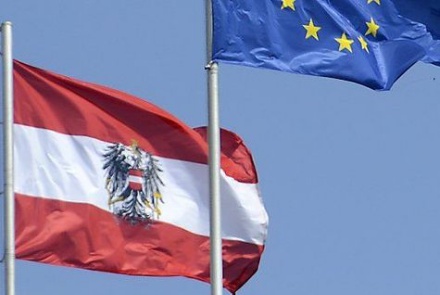Legal forms of legal entities in Austria.
The main legal forms of companies registered in Austria:
- Limited Liability Company (GmbH),
- Joint Stock Company (AG),
- European company (Societas Europaea - SE),
- General Commercial Partnership (OG),
- Commercial Limited Partnership (KG),
- Inactive Partnership (stGes),
- Non-Trading Partnership (GesbR),
- Cooperative (Gen),
- Association.
Other legal forms of companies are not provided for in Austrian law.
The most popular form is GmbH. Limited liability company - GmbH is a legal entity. His partners are not personally liable for the obligations of other partners. The obligations of each partner are limited by his contribution to the authorized capital of the enterprise. This form has been put into practice since 1906.
Joint Stock Companies (AG). Unlike GmbH, AG shareholders are not personally liable for the obligations of the company. The authorized capital of AG must be at least 70,000 euro. The moment of formation (institution) of AG is considered the moment of entering information about the company in the corporate register. AG founders may be one or more individuals and legal entities. The main governing bodies of AG are the Management Board (Board of Directors), the Supervisory Board and the Meeting of shareholders.
The board is responsible for the activities of AG. Unlike GmbH, neither the Supervisory Board nor the Meeting of Shareholders has the right to give directions to the Management Board. Board members are appointed and dismissed by decision of the Supervisory Board. The maximum appointment period is limited to five years. After the expiration of the appointment can be extended again.
AG annual reports must be independently audited. The maximum deadline for submitting an annual report is nine months after the end of the financial year.
Large AGs are required to publish their annual reports in the press.
European company (SE). Since 2004, SE form companies have been officially used in Austria. Conversion of an existing legal entity into SE form is carried out through the merger or transformation of a national AG, as well as the formation of a holding company with an existing SE company or its branch. Thus, SE cannot be established by individuals and, therefore, cannot be considered as a Startup option.
The main advantage of SE is the "internationality" of the company. This form allows the company’s administration to move its headquarters within the European Union. The company is managed by an Executive Directorate controlled by the Supervisory Board or the Management Board. The latter case has much in common with the Anglo-Saxon form of the Board of Directors.
General Commercial Partnership (OG). General commercial partnership - a company established by two or more individuals (legal entities). The founders, both jointly and personally, are liable for the obligations of the company.
The personal responsibility of the founders to creditors is not limited.
The partnership may engage in any permitted business activity, including individual entrepreneurship. This form of company is common in the field of agriculture or forestry.
The name of the company must meet the requirements similar to GmbH and contain the abbreviation OG. Not being a mandatory requirement, in practice it is recommended to conclude a Memorandum of Association, which can be signed without notarization. The moment of OG establishment is considered the moment of entering data into the corporate register of enterprises.
Commercial Limited Partnership (KG).
Provisions related to OG are generally applicable to KG. The only exception is the fact that KG shareholders must be partners with both limited and unlimited liability.
As part of the founders (shareholders), KG must have a partner who is personally and indefinitely responsible for the obligations of the company (General Partner), and at least one partner who has limited liability (Partner with limited liability) within his share in the authorized capital enterprises.
The situation is quite common when GmbH acts as the General partner, then this hybrid is called GmbH & Co KG.
As a rule, in such companies, individuals do not act as General Partners. The KG General Partner is responsible for the operation and representation of KG.
Inactive Partnership (stGes). This type of partnership is a means of participation of the owners of certain assets among the owners of a company owned by other owners (for example, GmbH or AG).
This form of partnership does not require the formation of a legal entity, can exist without a name, is not registered in the corporate registry and does not interact with other companies as an independent enterprise. StGes is managed and represented by the owner of the company. A partner may participate in the distribution of profits and losses.
Non-Trading Partnership (GesbR). This form of partnership is not an enterprise. This business unit is used to implement short-term projects in which two or more companies participate. GesbR are not registered in the corporate registry, are not involved in transactions and cannot acquire property in their own name.
Austrian branch of a foreign company. Foreign companies can organize branches in Austria. Although this form of enterprises is used relatively rarely. In this case, the following rules must be observed:
- a non-resident company establishing a branch is responsible for entering information in the corporate register.
- if the headquarters of the company is located outside the territory of the countries of the European Union, then an official representative who is a resident of Austria should be appointed for the branch. He is responsible for organizing the work of the branch, representing interests in court and other state bodies.
- restriction of authority of an official representative in relations with third parties is not allowed. However, restriction of the rights of an official representative in matters related to the management of the branch is allowed.
- the appointment of two or more official representatives, collectively responsible for representing the interests of the company, is permitted.
Companies with headquarters in the countries of the European Union do not require the appointment of an official representative. After information about a non-resident is entered into the corporate register, further organizational procedures can be carried out by official representatives of the branch. The branch does not have legal status. The branch does not have its own share capital. The value of property transferred to the branch is subject to corporate tax of one percent. This rule does not apply to non-residents from the countries of the European Union, as they are exempt from this tax. The branch is required to keep accounting records.
Co-op (Gen). A cooperative is a special form of association. It has its own legal status. The number of members is not limited. Serves to assist its members in acquiring property and conducting business.
Has no equity. Cannot be used for profit.
The activities of cooperatives are regulated by the Act on Cooperatives.
Association. Associations are rarely used to implement business projects.






